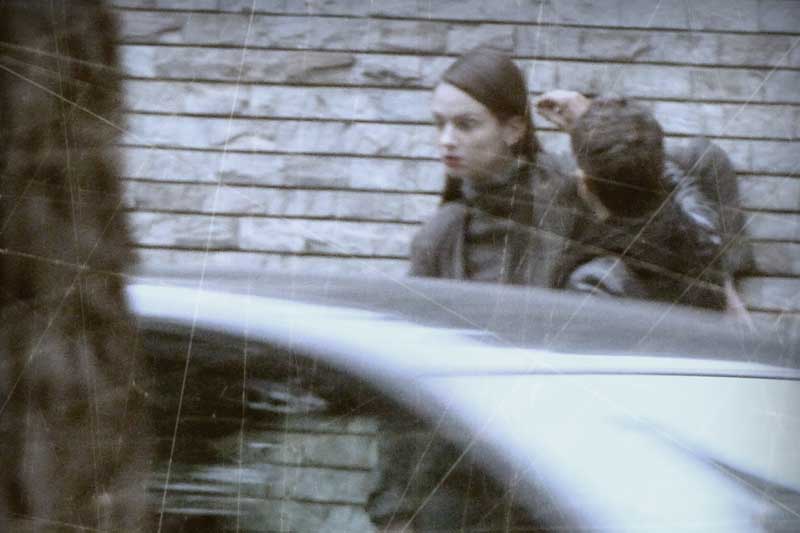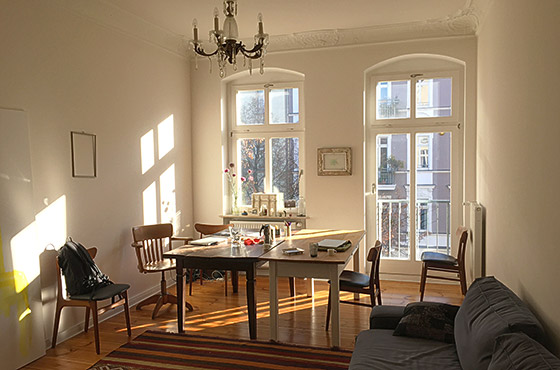Approach
Most important is an approach based on equality and openness. Scripts will not be judged according to being good/bad/right or wrong, but first and foremost explored to understand the writer’s intentions. All narrative tools should support those intentions, not supersede them.
Part 1
Preparation
Four projects will be assigned to the participants - one project per two participants. The participants are required to read all four scripts in advance of the workshop and to have written an analysis of their assigned script. In addition to this, participants are given access to a film and asked to write a two page analysis of the film. Both script and film analysis need to be submitted to the tutor by the deadline set before the workshop. Participants are also asked to have prepared a list of three films that have left lasting impressions on them.
Day 1
After getting to know each other, the first day of the workshop is dedicated exploring different techniques and approaches to visual narratives (like identificatory and reflective modes of character engagement; the role of the audience in the development process; dramatic, observational and contemplative scriptwriting, etc). A diverse range of contemporary films will be addressed to put things into a practical context. The film analysed as part of the prep work will be discussed and used as a detailed example to illuminate some approaches and aspects of scriptwriting.
Days 2 & 3
After this more theory-driven opening day, the two following days will be completely devoted to the discussion of the 4 scripts taking part in the workshop. Each script will be discussed in the group for half a day, first focussing on our impulsive reactions as audience and then trying to understand the intentions of the writer(s). We will define and analyse the strengths and weaknesses of the script and explore options to develop and improve the existing draft. The analyses of the participants will be addressed and will receive feedback by the tutor. The findings of each session are to be incorporated in the participants’ revised analysis of their assigned project.
Working with writers and filmmakers and how to give critical feedback is introduced on the final day of the first part and will be elaborated upon in the second part (see below - day 4).
Homework
Each participant writes a revision of their initial analysis, this can include their strategy for the meeting with the writer.
Part 2
Day 4
The first day of the second part of the workshop is dedicated to exploring ways of communicating with writers/filmmakers and giving critical feedback. The strategies discussed work from the assumption that the consultant has a true intention to help and support the work of the writer/filmmaker. All psychological techniques, human skills etc that will be addressed are not to be used to manipulate each other, but to further productive communication. Building trust is an important aspect of this process, as is the choice of language and the willingness to engage with another person. In addition, the revised analyses of the participants will be discussed, as well as the intentions and goals of each team of consultants for the actual meeting with the writer.
Days 5 & 6
The two final days of part 2 are given completely to practical experience. Each team of consultants will have a 75 minute consulting meeting with the writer of the project they have been assigned to.
The other participants and the tutor will observe this meeting without interfering in any way.
Each meeting plus discussion will take half a day.
After each consulting meeting, the writers/filmmakers will briefly give their feedback on how they perceived the meeting. After the writer has left, the two consulting participants will assess their own performance, followed by the rest of the group with their impressions of the meeting, and finally the tutor will talk the group through the meeting in detail, focusing on evaluation of the interpersonal communication, the ability to convey the intended content/goals of the meeting, etc.
The workshop closes with a recap and feedback from the participants.
Overview of preparation work and written assignments
- Writing a script analysis of up to 5 pages, on his or her assigned project, submitted to the tutor before the workshop.
- In addition to his or her own project, each participant needs to prepare for the workshop by closely reading the other 3 projects/scripts.
- In preparation for the first part participants will watch an assigned film and write a film analysis of approx. 2 pages also to be handed in before the workshop starts.
- During the first day of introductions tutor and participants will introduce themselves and talk briefly about 3 films that have left lasting impressions on them.
- After part 1, participants will revise the script analysis for their assigned project, in preparation for their meeting with the writer during the second part.


